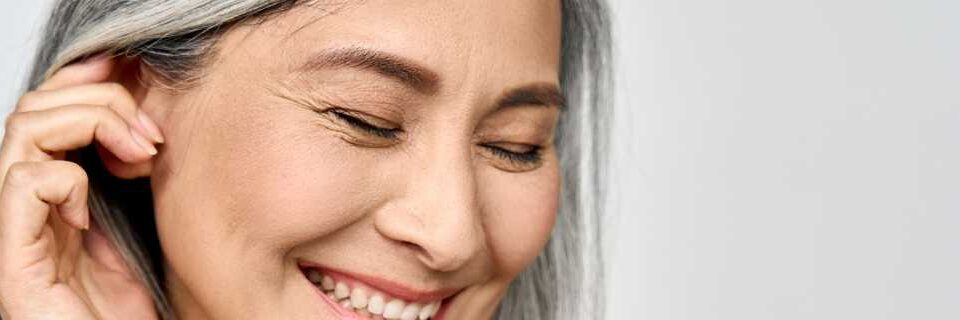
Seven Foods To Avoid With IBS

Smoking Cessation with Hypnosis: Does it Work?
Table of contents
The aging process is universal, but the journey through menopause is unique to every woman. Lifestyle and medical history play a role, but studies show symptoms may be influenced by culture too. Could our belief systems influence our symptoms? If so, that might explain why alternative therapies, such as lifestyle changes or hypnosis for women’s health, are so effective.
How Does Culture Influence Menopause?
For many women, the menopause transition occurs while they are caring for children or aging parents, navigating a demanding career, or facing challenges in other areas of their lives. Women everywhere go through the same biological changes, but not all have the same levels of distress.
The results of a 1973 anthropological study of 483 women in India reported changes in menstruation as their primary symptom. Apart from menstrual cycle modifications, very few women had any other changes. In similar research a decade later, Japanese women complained about stiff shoulders but rarely had hot flashes. In Hong Kong, the chief complaint was joint and muscle pain. In all of these women, most of the discomfort was mild. Mayan women, on the other hand, described discomfort but also felt freer and more respected after menopause.
In the U.S., a country that commercializes medicine and worships youth, women’s main symptoms are hot flashes and night sweats. Despite diverse resources, a stigma of aging makes it harder for American women to accept biological and social changes. A 2020 article in an Asian gynecological journal may explain some of the cultural differences. When researchers observed 200 women in a rural area, they found that menopausal symptoms were widespread but often went unnoticed and unreported in rural communities. The topic was taboo, and medical resources were inadequate.
Many factors, including genetics, ethnicity, and socioeconomic level, affect the menopause transition. Education, lifestyle, and cultural norms shape the hand we are dealt. Based on the research, the stories we tell ourselves about menopause may help to form our experience.
Lifestyle and Fitness Tips For Menopause
If symptoms vary around the world because of lifestyle differences, these habits might help to level the playing field:
Exercise
Healthcare professionals agree that exercise benefits menopausal women in five ways:
- It prevents weight gain, especially abdominal fat.
- It strengthens bones and reduces the risk of fractures or breaks.
- It lowers the risk of cancer associated with weight gain.
- It lowers the risk of conditions like diabetes and heart disease.
- It improves mood and lowers the risk of dementia or depression.
Diet
A healthy diet offers the nutrients the body needs to stay healthy, and it prevents unwanted weight gain from processed, high-carbohydrate foods. These tips encourage a balanced diet for menopausal women:
- Eat a diet of whole grains, vegetables, fruits, lean protein, and low-fat dairy products.
- Avoid processed foods and those high in salt or fat.
- Avoid alcohol, or limit to one drink a day.
- Cut back on foods, such as spicy and caffeine, that trigger hot flashes.
- Drink a lot of water to stay hydrated and minimize hot flashes.
- Use fresh ingredients to prepare home-cooked meals.
Relaxation
As estrogen levels fall during menopause, the body’s hormonal system gets out of balance. When minor events set off a flight or fight response, the body cranks out cortisol and adrenaline. Stress is constant in modern society, and the nervous system has trouble calming down after the perceived danger has passed. Cortisol levels remain high, and women become susceptible to sleep problems, mood swings, muscle tension, anxiety, and depression. Telling an anxious person to relax only makes the problem worse, but these techniques can help:
- Meditation to balance the nervous system
- Breathing Exercises to slow the heart rate and calm the mind
- Yoga for relaxing tense muscles and creating a meditative state
- Alternative healing techniques, such as acupuncture and massage
- Physical activity to relieve pent-up energy and stay healthy
- Hypnosis for changing old habits or beliefs
Women’s Hypnotherapy For Health and Wellbeing
Hypnotherapy is the use of repetition and suggestion to induce a state of deep relaxation, allowing the subconscious mind to replace self-defeating thoughts and beliefs. It can be used alone or as a complementary treatment, offering a cost-effective treatment that is easily available and can be self-administered.
Hypnosis has been used to treat addiction, PTSD, pain, anxiety, and chronic illnesses. It is also effective for the symptoms of menopause, irritable bowel syndrome, and sleep disorders. Like other relaxation techniques, hypnosis calms the nervous system and enables the body to heal itself.
Self-Hypnosis Made Easy
An experienced hypnotherapist can teach you how to induce a hypnotic state, or you can use positive suggestions and affirmations to do it on your own. Recording a written script is one option, but you can also listen to recorded sessions of hypnosis for women’s health.
At UpNow, our professional team provides one-to-one services, online resources, and an app with audio downloads. Get started for free with a selection of free hypnosis audios or sign up now for full access or to learn about hypnosis for women’s health.
UpNow Health only uses high-quality sources, including peer-reviewed articles, to support the facts within our articles. All our articles are reviewed by experts to ensure that our content is accurate, helpful, and trustworthy.
1. Flint M. (1975). The menopause: reward or punishment?. Psychosomatics, 16(4), 161–163. https://doi.org/10.1016/S0033-3182(75)71183-0
2. Lam, P. M., Leung, T. N., Haines, C., & Chung, T. K. (2003). Climacteric symptoms and knowledge about hormone replacement therapy among Hong Kong Chinese women aged 40-60 years. Maturitas, 45(2), 99–107. https://doi.org/10.1016/s0378-5122(03)00090-2 . Accessed 20th July 2022.
3. Armo, M., & Sainik, S. (2020). Assessment of Menopausal Symptom Using Modified Menopause Rating Scale among Rural Women of Rajnandgaon in Chhattisgarh, a Central India Region. Journal of South Asian Federation of Obstetrics and Gynaecology. https://www.semanticscholar.org/paper/Assessment-of-Menopausal-Symptom-Using-Modified-of-Armo-Sainik/d14a133f128a01d34a4633438c219f3c251c119b Accessed 20th July 2022.
4. Understanding adult overweight and obesity. National Institute of Diabetes and Digestive and Kidney Diseases. https://www.niddk.nih.gov/health-information/weight-management/adult-overweight-obesity/all-content. Accessed 20th July 2022.












